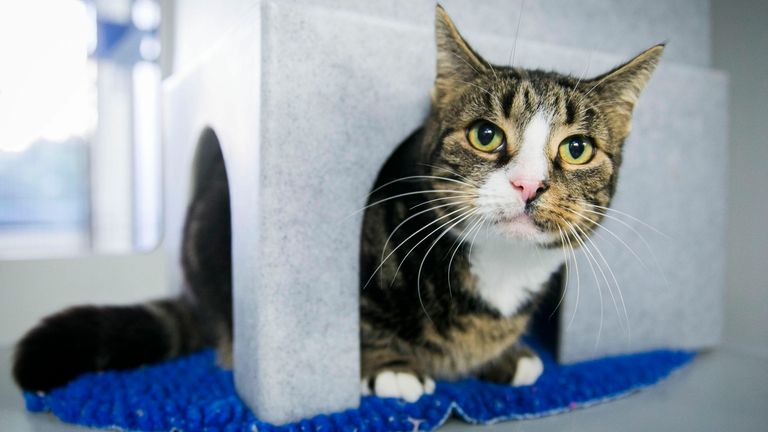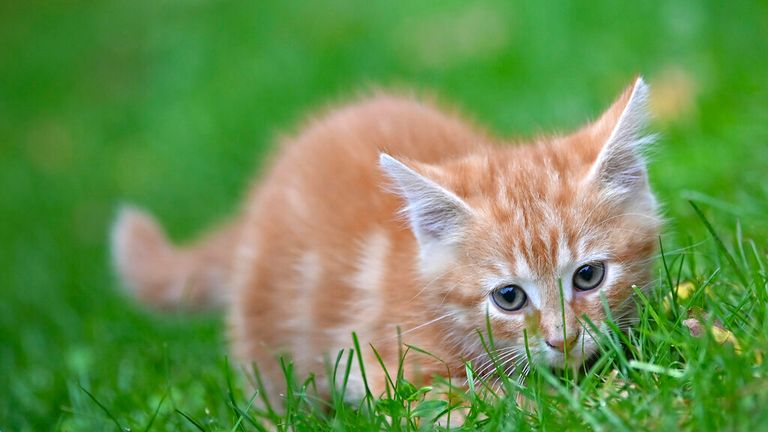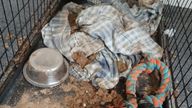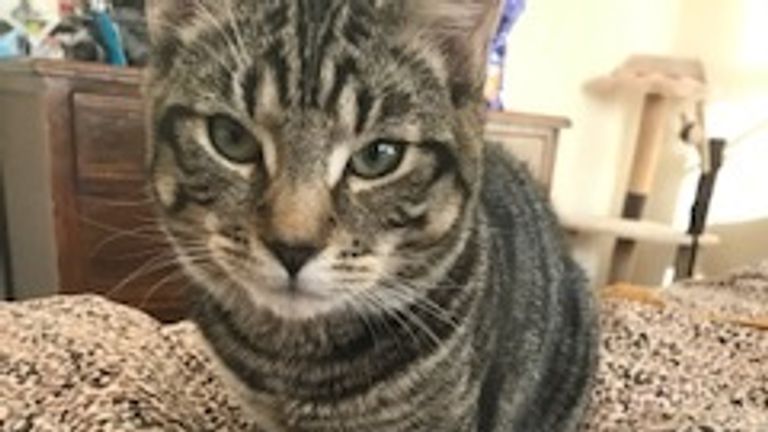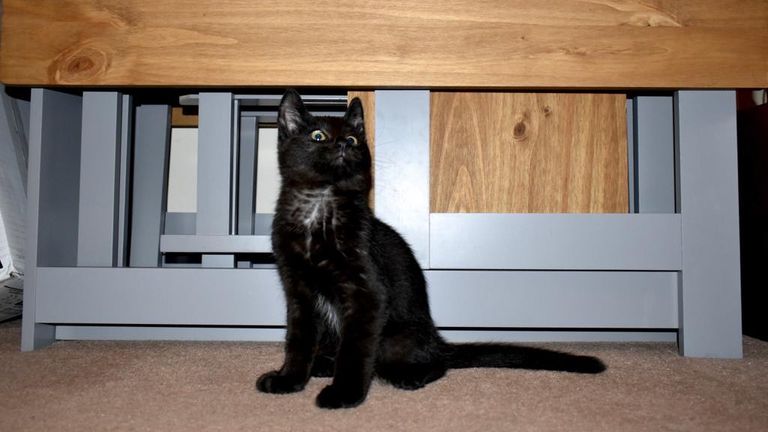Feline pancytopenia: At least 330 cats feared to have died from mysterious illness linked to recalled pet food
The Royal Veterinary College warns the true number of cases could be higher as many cats who become ill may not be taken to a veterinary practice.
Thursday 5 August 2021 22:26, UK
At least 330 cats died from a mysterious illness investigators believe could be linked to recalled cat food, according to the Royal Veterinary College (RVC).
Vets across the UK have treated at least 528 cases of feline pancytopenia.
The illness causes the number of red and white blood cells and platelets in cats to rapidly decrease, causing serious illness which can often be fatal.
The RVC said that of the cases treated at their own hospitals or by vets, there was a 63.5% mortality rate.
The true number of cases could be higher, it warned, because many cats who become ill may not be taken to a veterinary practice.
Sainsbury's and Pets at Home are among several retailers who have pulled dry cat food from their shelves over potential links to the disease.
The FSA and the Department for Environment, Food and Rural Affairs (Defra) warned cat owners not to give their pets dry food made on behalf of the brands by manufacturer Fold Hill Foods, as a precaution.
The FSA said the outbreak of pancytopenia was potentially linked to specific cat products, which were being recalled.
It added that there is "no evidence to suggest this outbreak presents any risk to human health".
The government is working with the RVC and the Animal Plant and Health Agency, as well as authorities across Britain and the pet food supply chain, to investigate the possible link.
Commenting on the investigation in July, a spokesperson for the RVC said: "Currently, we are sadly aware of over 500 affected cats. Investigations into an underlying cause do not suggest a link with common feline infectious diseases, common toxins (e.g., heavy metals, oestrogen) or deficiencies/excesses in vitamins or minerals.
"Results of analyses by the RVC of cat food involved in the product recall published by the Food Standards Agency (FSA) have been shared with the FSA."
One cat owner whose cat died after eating food linked to the outbreak told Sky News of her heartbreak.
Natalie Mitchell, 38, said she believes the death of her eight-month-old kitten Dave was one of the first cases.
She said Dave was a "very lively and very happy" kitten who would normally run up and jump on her bed in the mornings, but one day in May she found him poorly and lying under her bed.
"He did not appear ill but he was very quiet and it was just out of character," Ms Mitchell, a writer from Kent, said.
"We managed to get him to the vets that day and they found he had a very high temperature. They did a blood test and found he had no platelets, no red blood cells and no white blood cells.
"The vet was concerned and confused because she hadn't experienced this before."
They took Dave to a hospital in Essex where his condition deteriorated. He was put down after he was found to be bleeding internally and was unable to breathe properly.
"We agreed that was the kindest thing. It was really gutting. He'd gone from totally fine to dead in three days," Ms Mitchell said.
She had Dave's brother, Brian, checked and a blood test found he had the same condition despite showing no symptoms.
"At this stage, the mortality rate was around 100%, Ms Mitchell added.
Brian was given antibiotics and steroids and stayed at home for six weeks. Ms Mitchell said he had improved to the point where had been weaned off his medicine.
"But there are cats that keep relapsing, so we are still taking him for regular blood tests. So it's really stressful," she said.

